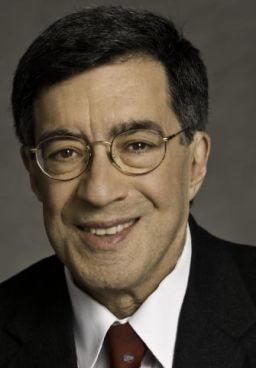Editor’s Note: David A. Andelman, editor emeritus of World Policy Journal and member of the board of contributors of USA Today, is the author of “A Shattered Peace: Versailles 1919 and the Price We Pay Today.” Follow him on Twitter @DavidAndelman. The views expressed in this commentary are his own.
Story highlights
Andelman: If she wins, Clinton must embrace Comey and accept that the FBI's independence is worth preserving
If Trump wins, he must accept that revenge is not appropriate for any American leader
The blond woman at the next table in the tiny bistro on the Ile St. Louis in Paris said she’d spent her career as a “researcher.” But a short time later, she confessed her “research” had been undertaken as a senior agent for Renseignements Generaux – euphoniously translated, “general information,” but in fact, it’s the French equivalent of the FBI.
The problem, as her story all tumbled out, was that a whole lot of this “research” was just plain political.
And not just political, though certainly truly corrupt officials from France’s overseas territories to the heart of Paris are a part of the agency’s mission, as well as counter-terrorism and the usual gangs and drugs, even regulating horse racing and gambling. But political in the sense of plain and simple revenge.

Eleanor, we’ll call her (though she’d recently retired, she could clearly still feel the hot breath of potential revenge on her own neck) expressed her sadness that the French system had become so very much different from the American.
Each French president, when he assumed office, would all but automatically appoint a new head of the RG of his own political party who would in turn, reflexively open a detailed investigation of the entourage of his predecessor, leading often to indictments, or at least hauling individuals in for extended interrogation and endless media attention.
This happened in 2012 when the newly-elected Socialist President Fran?ois Hollande sacked Frédéric Pechénard, head of the national police force; Michel Gaudin, the Paris police chief, and Bernard Squarcini, director of the RG.

Each had committed the paramount sin of close loyalty to defeated President Nicolas Sarkozy. Indeed, Squarcini himself almost immediately came under investigation for having used the security services to trace press leaks damaging to Sarkozy.
Almost immediately, probes were opened into the campaign finances of Sarkozy and his party leaders. Today, as France readies for its next election in May, Sarkozy is still being hauled in for interrogation on use of campaign funds in his failed 2012 campaign.
Somehow, this has come to be almost expected in France. Let’s hope the United States doesn’t follow France’s unseemly example. America is, or should be, better than this. Because France is a cardinal example of the dangers of politicizing law enforcement. Such an image of French investigators has led to deep suspicion of all French law enforcement, especially within the nation’s vast, heavily Arab, immigrant communities that have proved so hospitable to terrorist bombers and led authorities to spend months trying to locate suspects whose names had long been known to them.

As it happens, operations of neither the FBI nor the Justice Department are guaranteed by the US Constitution. They are creatures of the executive branch, established by acts of Congress, whose independence is guaranteed only by statute, precedent and an indelible sense of the special role each plays in how democracy should operate in America.
So when former House Speaker Newt Gingrich tweets: “If @HillaryClinton is elected, the criminal investigations will be endless,” and when Donald Trump proclaims after the FBI had cleared Clinton a second time, “Hillary Clinton is guilty. She knows it, the FBI knows it,”adding “she will be under investigation for a long, long time, likely concluding in a criminal trial,” the entire American justice system risks turning into a revolving door reflection of the dysfunctional and deeply politicized French system.
The United States has long served as a model for the special kind of role that democracy plays at every level of society – the very reason that Congress, itself today so deeply divided, gave the FBI director a 10-year term that can, and often has, transcended political changes in the Oval Office.
Any lack of confidence in this system and its most sensitive and powerful institutions sends a message to the rest of the world that the United States is no longer a shining beacon of fairness and justice. It also sends a message to Americans: that such behavior is entirely acceptable, that justice is effectively for sale and that the victor has every right to his, or her, pound of flesh.
Eleanor’s parting words were that she hoped fervently the United States was not headed in the same direction. I would have to agree with her. The winner in our presidential sweepstakes must embrace both the ideal and the individuals who will enforce these ideals.
Should she win, Hillary Clinton must embrace James Comey and accept that the FBI is indeed an organization whose independence is worth preserving at all cost. She must choose an attorney general prepared to accept such a view as well. If he wins, Donald Trump must accept that he has been elected president of all the people and that revenge is not an appropriate attribute for any American leader.
Indeed, all those in power must understand the responsibility that accompanies it. Even a deeply divided Congress must resist the urge to purge. And if there were any doubt as to how critical that is to the political future of even the most self-serving legislator, the latest poll in France shows the popularity of Fran?ois Hollande hovering at just 4 percent.

